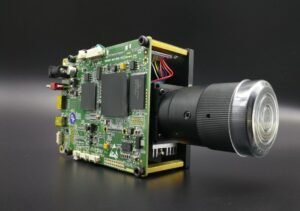AI with App Inventor
Artificial Intelligence (AI) is revolutionizing various industries, and now, with App Inventor, even those with no programming experience can create their own AI applications. This powerful tool allows users to develop applications using a visual drag-and-drop interface, making it accessible to beginners and experts alike. With AI capabilities integrated into App Inventor, the possibilities are endless. In this article, we will explore how AI with App Inventor is shaping the future of app development and what exciting opportunities it offers.
Key Takeaways:
- App Inventor enables the creation of AI applications without programming skills.
- AI capabilities in App Inventor expand the potential of app development.
- App Inventor makes AI accessible to beginners and experts alike.
- AI with App Inventor opens up numerous opportunities for innovation.
App Inventor is a web-based platform that empowers users to create mobile applications by utilizing a block-based programming language. The integration of AI components in App Inventor enables the development of intelligent apps without the need for extensive coding knowledge. By simply dragging and dropping AI components onto the design canvas, users can incorporate AI functionalities into their applications.
One interesting feature of AI with App Inventor is the ability to enhance applications with computer vision. This means that apps can identify and understand images, enabling a wide range of possibilities. For example, a health app could analyze images of food to provide calorie estimation, or a language learning app could recognize objects and correctly pronounce their names.
App Inventor provides built-in AI components that simplify the process of integrating AI functionality. These components include pre-trained machine learning models, such as image classifiers and text recognizers, making it easy for users to incorporate AI capabilities into their applications. Additionally, it supports external AI services and APIs, allowing developers to integrate their own AI models or access AI services provided by other platforms.
Table 1: Comparison of App Inventor AI Features
| Feature | App Inventor AI | Traditional App Development |
|---|---|---|
| Accessibility | Drag-and-drop interface makes AI development accessible to beginners. | Requires programming skills and knowledge of AI frameworks. |
| Efficiency | Quickly develop AI applications without spending time on complex coding. | Developing AI functionality from scratch can be time-consuming. |
| Flexibility | Supports integration of both pre-trained machine learning models and external AI services. | Developers need to implement AI models themselves or rely on limited built-in functionality. |
Furthermore, App Inventor allows users to train their own models, providing the flexibility to create custom AI solutions. By utilizing the machine learning component, users can upload labeled datasets, train their models, and deploy them within their applications. This empowers developers to create tailored solutions based on their specific requirements.
The possibilities with AI and App Inventor are vast. Here are a few examples of how AI with App Inventor can be utilized:
- Creating voice-controlled applications
- Developing chatbots with natural language processing
- Designing smart home automation apps
- Building recommendation systems
- Implementing sentiment analysis in social media monitoring tools
Table 2: AI Applications Created with App Inventor
| Application | Description |
|---|---|
| Smart Assistant | An app that uses voice recognition to perform tasks like setting reminders and providing weather updates. |
| Language Tutor | A language learning app that uses AI to assess pronunciation and provide feedback. |
| Smart Home Controller | An app that allows users to control their home devices, such as lights and thermostats, using voice commands. |
The combination of AI and App Inventor democratizes app development by making it accessible to a larger audience. It enables individuals who may not have extensive programming skills to harness the power of AI and create innovative applications. As AI technology continues to advance, so too will the capabilities of App Inventor, unlocking even more exciting possibilities.
Table 3: Benefits of AI with App Inventor
| Benefit | Description |
|---|---|
| Accessibility | Enables people without programming skills to develop AI applications. |
| Empowerment | Gives individuals the tools to create personalized AI solutions tailored to their specific needs. |
| Innovation | Opens up endless possibilities for creative app development and new use cases. |
AI with App Inventor is revolutionizing the way apps are developed, bringing AI capabilities within reach of everyone. Whether you’re a beginner learning the basics of app development or an experienced developer looking to leverage the power of AI, App Inventor provides a user-friendly platform for creating intelligent applications. With its drag-and-drop interface, built-in AI components, and support for external AI services, App Inventor empowers users to design innovative solutions that harness the potential of AI.

Common Misconceptions
Misconception: AI with App Inventor is Only for Experts
One common misconception about AI with App Inventor is that it is a complex tool that is only suitable for experts in programming and artificial intelligence. However, this is not true. App Inventor is designed to be user-friendly and accessible to beginners as well. It provides a visual programming environment that allows users to create AI-powered apps without any prior coding experience.
- App Inventor provides a drag-and-drop interface, making it easy for beginners to understand and use.
- App Inventor offers a wide range of learning resources, such as tutorials and sample projects, to help beginners get started.
- You don’t need to know advanced mathematics or algorithms to use AI with App Inventor; the tool abstracts away the complexity.
Misconception: AI with App Inventor Requires High-End Devices
Another misconception is that AI with App Inventor can only be used on high-end devices or powerful computers. This is not true either. App Inventor is a web-based tool that runs in your web browser, so you don’t need a powerful computer to use it. The apps you create with App Inventor can also be run on a wide range of devices, including low-end smartphones and tablets.
- App Inventor’s web-based nature allows it to be run on any computer with a modern web browser, regardless of its computing power.
- The apps created with App Inventor can be installed and run on Android devices, which have a wide range of performance capabilities.
- App Inventor optimizes the generated code to ensure that it runs efficiently on a variety of devices.
Misconception: AI with App Inventor Lacks Advanced Features
Some people think that AI with App Inventor is limited in its capabilities and lacks advanced features compared to other AI development tools. While App Inventor may not have every advanced feature of professional AI development tools, it still provides a range of powerful AI features that can be used to create impressive apps.
- App Inventor supports machine learning with its built-in AI components, such as the Text Classification component.
- You can use AI with App Inventor to create apps that recognize speech, images, and even gestures using the available components.
- App Inventor allows you to integrate with external AI services and APIs, giving you access to a wider range of advanced AI features.
Misconception: AI with App Inventor Cannot Create Real-World Applications
There is a misconception that AI with App Inventor is only suitable for creating small, simple apps and cannot be used to create real-world, complex applications. This is not true. App Inventor provides the tools and flexibility to create a wide range of real-world applications that utilize AI.
- You can use AI with App Inventor to create educational apps that teach AI concepts and principles.
- App Inventor can be used to create apps for automation, such as home automation or smart city solutions.
- AI-powered apps created with App Inventor can be used in healthcare, finance, transportation, and many other industries.
Misconception: AI with App Inventor Is Only for Mobile Apps
Another common misconception is that AI with App Inventor is limited to creating mobile apps only. While App Inventor is excellent for creating mobile apps, you can also use it to create AI-powered web applications and even desktop applications.
- App Inventor allows you to create web applications that can be accessed and used through a web browser.
- You can use App Inventor to create desktop applications that can be installed and run on Windows, macOS, and Linux platforms.
- App Inventor provides features to create apps that can be deployed across multiple platforms, ensuring wider accessibility.

AI in Education
Artificial Intelligence (AI) technology is revolutionizing various sectors, including education. In recent years, AI has been increasingly integrated into educational tools and platforms, offering personalized learning experiences and enhancing student engagement. The table below highlights some examples of AI applications in the education sector.
| Application | Description |
|---|---|
| Intelligent Tutoring Systems | Virtual tutors that provide individualized instruction based on student’s needs and capabilities. |
| Automated Grading Systems | AI algorithms that can accurately evaluate and grade exams, papers, and assignments. |
| Smart Content | AI-powered educational content that adapts to the learner’s pace and level of understanding. |
| Chatbots | Virtual assistants that provide instant support and guidance to students, answering their questions. |
AI in Healthcare
The healthcare industry is witnessing the transformative impact of AI in various aspects of patient care and treatment. The following table showcases some noteworthy applications of AI in healthcare.
| Application | Description |
|---|---|
| Medical Imaging Analysis | AI algorithms that aid in the detection and diagnosis of diseases through the analysis of medical images. |
| Patient Monitoring | AI-assisted systems that continuously monitor patients’ vitals and notify healthcare providers of any abnormalities. |
| Drug Discovery | AI systems that accelerate the process of discovering new drugs, reducing development time and costs. |
| Virtual Nurses | AI-powered virtual assistants that interact with patients to provide support, monitor their progress, and offer advice. |
AI in Finance
The financial industry has embraced AI technologies to enhance operations and improve customer experiences. The table below demonstrates some key AI applications in the finance sector.
| Application | Description |
|---|---|
| Robo-Advisors | AI-powered systems that provide automated investment advice and portfolio management. |
| Fraud Detection | AI algorithms that analyze vast amounts of data to detect and prevent fraudulent transactions. |
| Algorithmic Trading | AI systems that execute trades based on predefined rules and market analysis, minimizing human errors. |
| Customer Service Chatbots | AI chatbots that interact with customers, answer inquiries, and assist with banking services. |
AI in Transportation
The transportation sector has seen significant advancements through the application of AI, improving efficiency, safety, and convenience. The following table showcases some notable AI implementations in transportation.
| Application | Description |
|---|---|
| Autonomous Vehicles | AI technology that enables vehicles to operate without human intervention, reducing accidents and congestion. |
| Traffic Management | AI systems that optimize traffic flow, reduce delays, and improve overall transportation network efficiency. |
| Smart Parking | AI-powered platforms that enable real-time monitoring and efficient management of parking spaces. |
| Ride-Hailing Algorithms | AI algorithms that optimize ride-hailing services, ensuring efficient matching of drivers and passengers. |
AI in Entertainment
The entertainment industry has leveraged AI innovations to enhance user experiences and create personalized content recommendations. The table below presents some intriguing AI applications in entertainment.
| Application | Description |
|---|---|
| Recommendation Engines | AI algorithms that analyze users’ preferences and behaviors to suggest personalized movies, music, and shows. |
| Virtual Actors | AI-generated virtual characters that can perform on screen, bringing imaginary worlds to life. |
| Game AI | AI systems that simulate human intelligence to enhance gameplay and provide challenging opponents. |
| Content Creation | AI tools that can generate scripts, music, and visual effects, assisting in the creative process. |
AI in Marketing
AI has revolutionized marketing strategies, enabling businesses to analyze vast amounts of data, optimize campaigns, and deliver targeted advertisements. The following table highlights key AI applications in the marketing domain.
| Application | Description |
|---|---|
| Predictive Analytics | AI algorithms that analyze customer data to predict future behavior and optimize marketing strategies. |
| Chatbots for Customer Engagement | AI-powered chatbots that interact with website visitors, provide product recommendations, and assist with inquiries. |
| Dynamic Pricing | AI systems that adjust prices based on market demand, competitor analysis, and other variables. |
| Personalized Email Campaigns | AI tools that generate customized emails, ensuring relevant content is delivered to each recipient. |
AI in Communication
AI technologies have significantly impacted communication and language-related tasks, improving efficiency and accuracy. The table below presents some remarkable AI applications in communication.
| Application | Description |
|---|---|
| Language Translation | AI systems that translate text or speech between different languages, facilitating global communication. |
| Speech Recognition | AI algorithms that recognize and convert spoken language into written text, aiding transcription tasks. |
| Virtual Assistants | AI-powered digital assistants, such as Siri and Alexa, that respond to voice commands and perform various tasks. |
| Summarization | AI tools that can generate concise summaries of lengthy texts, saving time and improving information retention. |
AI in Agriculture
AI has found numerous applications in agriculture, helping optimize farming practices, improve yield, and reduce environmental impact. The table below showcases some noteworthy AI implementations in agriculture.
| Application | Description |
|---|---|
| Precision Farming | AI-based systems that enable precise planting, fertilization, and irrigation, maximizing crop productivity. |
| Plant Disease Diagnosis | AI algorithms that analyze images of crops to detect diseases and provide recommendations for treatment. |
| Harvesting Automation | AI-powered robots that can autonomously harvest crops, minimizing dependence on human labor. |
| Weed Identification and Control | AI systems that accurately identify and help eliminate invasive plant species without harming crops. |
AI in Cybersecurity
The field of cybersecurity greatly benefits from AI technologies, which can analyze large datasets to detect and prevent cyber threats. The following table highlights key AI applications in cybersecurity.
| Application | Description |
|---|---|
| Threat Detection | AI systems that monitor network activities, identify anomalies, and detect potential cybersecurity breaches. |
| Behavioral Biometrics | AI algorithms that analyze users’ behavioral patterns and biometric data for enhanced authentication and fraud prevention. |
| Malware Analysis | AI techniques that analyze malicious software to detect and develop countermeasures against evolving threats. |
| Automated Vulnerability Assessment | AI tools that scan systems and applications to identify vulnerabilities and recommend security patches. |
Artificial Intelligence has revolutionized multiple industries, facilitating advancements, and streamlining processes. From education and healthcare to finance and transportation, AI continues to pave the way for innovative solutions, personalized experiences, and increased efficiency. As AI technology continues to advance, its potential for transforming various sectors is limitless.
AI with App Inventor – Frequently Asked Questions
FAQ
What is App Inventor?
Can App Inventor be used for AI development?
Do I need any coding experience to use App Inventor for AI development?
Are there any limitations to AI development with App Inventor?
Can I integrate external AI tools or libraries with App Inventor?
Is App Inventor suitable for advanced AI projects?
Can I monetize the AI apps created with App Inventor?
Does App Inventor support natural language processing (NLP)?
Is there a community or support available for App Inventor users interested in AI development?
Can App Inventor be used for AI development on platforms other than Android?





